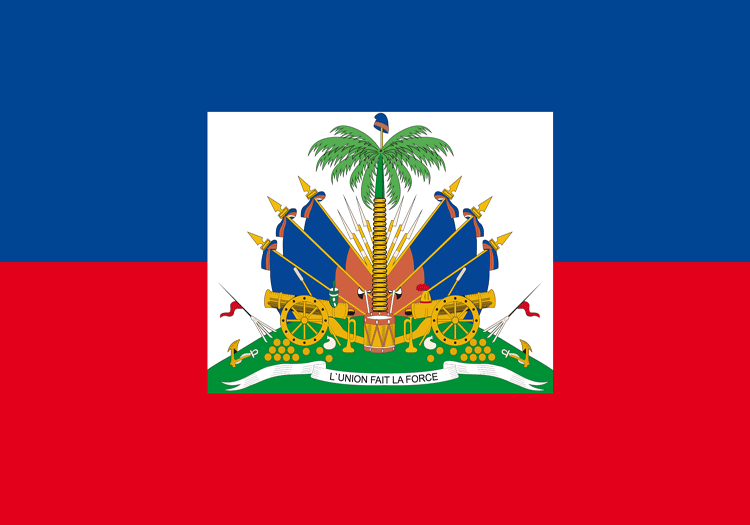Introduction
The presidency of the Republic in Haiti is a key institution in the functioning of the state. But what is a good president? Is it just a political leader, or a strategist who ensures the stability of the country and its good governance?
A President must not only manage a term but also carry a national and global vision, respect institutional protocols, and use modern governance tools to fulfill their responsibilities. This article highlights the presidential role, best governance practices, and the protocol requirements that frame this high office.
📌 A President Must Carry a Global, Not Partisan, Vision
A Head of State is above all the guarantor of the continuity of the State and cannot govern with a narrow vision dictated by partisan interests. He must:
✔️ Govern for the entire population, including all political and social sensitivities.
✔️ Ensure the stability of institutions, regardless of political tensions.
✔️ Develop a long-term strategic vision to promote the country's development.
✔️ Avoid electoral decisions and think about future generations, not just the next elections.
A good President must understand that every decision he makes will have a lasting impact on the nation. He does not govern for his party, but for all the Haitian people.
🛠️ Good Practices of Presidential Governance
A President cannot govern effectively without modern tools and a structured methodology for making strategic decisions. The exercise of power requires a clear and quantified vision of the country's situation, as well as the ability to anticipate and adapt to national and international challenges.
📊 The Presidential Dashboard: An Essential Tool
A President cannot govern effectively without a clear and quantified view of the country's situation. A presidential dashboard is essential for real-time monitoring:
✔️ Economic indicators (growth, inflation, employment, public finances).
✔️ The performance of major government projects.
✔️ National emergencies (disasters, social tensions, security threats).
✔️ International commitments and the monitoring of signed agreements.
A well-designed dashboard helps the President make informed decisions based on concrete facts rather than political pressures.
📝 The Presidential Debriefs: A Key Meeting for Strategy
A President must hold regular debriefs with his ministers and advisors to:
✔️ Analyze the progress of public policies.
✔️ Identify economic, social, and political tensions.
✔️ Adjust government strategies according to the realities on the ground.
These meetings help maintain an agile and proactive governance, preventing crises from worsening due to a lack of quick response.
🌍 Diplomacy and Crisis Management
A good President is not limited to internal affairs. He must also:
✔️ Anticipate and manage crises in collaboration with his ministers and the country's experts.
✔️ Maintain strong relationships with the international community to defend Haiti's interests.
✔️ Ensure social and political cohesion by engaging in dialogue with all actors in society.
To govern is to anticipate, listen, and act with strategy and intelligence.
🎩 Presidential Protocols: A Role That Demands Rigor and Mastery
A Head of State represents their country and must adopt an impeccable protocol posture in their official interactions.
1️⃣ National Protocols
In Haiti, the President must adhere to certain rules during interactions with:
✔️ The other powers of the State:
- Maintain an institutional balance with Parliament and the Judiciary.
- Observe protocol respect towards the presidents of the Senate and the House of Representatives.
✔️ Religious and traditional authorities:
- Participate in major events with inclusive language and an appropriate discourse.
✔️ Representatives of civil society and the private sector:
- Maintain an open and institutional dialogue, without favoritism.
✔️ Official ceremonies and public speeches:
- Respect the dress code and speaking protocols according to the events.
2️⃣ International Protocols
During diplomatic meetings, the President of Haiti must:
✔️ Observe the rules of precedence (order of passage, place in official processions, etc.).
✔️ Respect the dress and gesture codes during international ceremonies.
✔️ Use appropriate diplomatic language in exchanges with heads of state and foreign dignitaries.
✔️ Ensure effective negotiation during bilateral agreements and international summits.
A simple protocol misstep can harm the country's image on the international stage, which is why rigorous training and guidance for the Head of State and their team is important.
📢 Why Every Citizen Must Understand How the Presidency Works?
An informed citizen knows that the Presidency is not limited to political speeches. Understanding its responsibilities allows for:
✔️ Better assess the actions of the Head of State based on objective criteria.
✔️ Understand the impact of presidential decisions on daily life.
✔️ Demand more transparency and efficiency in the management of the country.
✔️ Actively participate in democratic life with a more informed vote.
A well-governed country begins with well-informed citizens!
📚 Want to deepen your knowledge? Sign up for our course (in French or Creole)!
If you wish to deepen your understanding of the presidential role, best governance practices, and official protocols, we offer you an exclusive course that will allow you to:
✅ Master the presidential codes and protocols.
✅ Analyze presidential practices and their impact on the country.
✅ Decrypt the management tools of the executive power.
✅ Develop a critical perspective on presidential governance.
📅 The course will be available starting May 20, 2025.
📌 Sign up now to be among the first to benefit!
🚀 Be an informed citizen and a catalyst for change!


